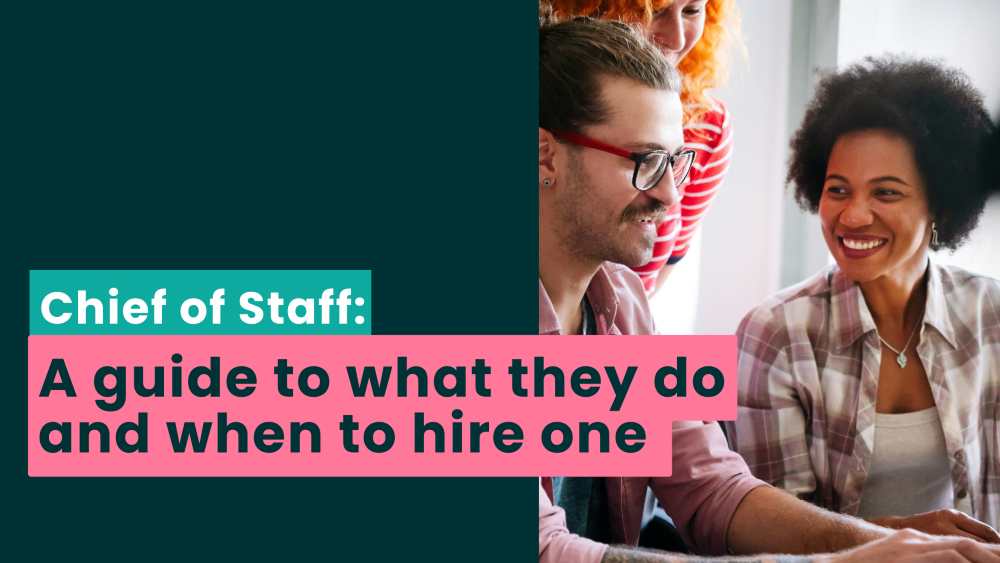 Contact Us
Contact Us
“The Chief of Staff is in a really unique position to work across all levels, all roles within the executive team and sometimes even at board level or board committee level.” — Louisa Gregory, Former CoS
The Chief of Staff (CoS) role has quietly become one of the most leveraged hires for high-growth companies. Once thought of as a political aide reserved for government and large corporates, the CoS is now a common presence in scaling start-ups, venture-backed companies and even founder-led growth-stage businesses.
Why? Because as an organisation grows beyond 30–50 people, the CEO’s job changes. It becomes less about personally pushing priorities forward and more about ensuring the system itself works. A strong CoS is the glue between strategy and delivery, translating vision into coordinated execution, ensuring the right conversations happen at the right time and unblocking the inevitable friction that arises when work spans multiple functions.
At its best, the CoS role covers five broad areas:
In practice a CoS will often toggle between being a programme manager, strategic adviser, diplomat and firefighter, sometimes all in the same day.
One of the most common points of confusion is how a CoS differs from adjacent roles:
If the EA ensures the CEO shows up to the right meeting, the CoS ensures the meeting itself matters.
Not every company needs a Chief of Staff but when the following signals show up, it’s time to consider the role:
A useful heuristic: when the CEO’s calendar becomes the bottleneck for company progress, a CoS can unlock leverage.
Different company stages call for different CoS archetypes. Some common patterns:
The key is to match the CoS profile to your company’s stage and gaps, not to a generic job description.
A Chief of Staff is a force multiplier, not a silver bullet. Avoid hiring one if:
The first three months should provide quick proof of value:
Scorecard themes:
Interview prompts:
A Chief of Staff is the fastest way to add execution muscle without adding another layer of hierarchy. If your company’s biggest challenges live between teams, not within them, consider hiring one. But match the profile to your actual gaps, grant real authority and access and measure the role by outcomes not activity.
If you would like more advice on hiring a CoS or discuss how Talentedge can help you find the best Chief of Staff for your business get in touch with Chris Pestell at chris.pestell@talentedge.co.uk.
A guide for CFOs and finance leaders on using data storytelling and AI to transform reports into stories that drive strategy and decisions.
Read MoreAn opportunity to watch the full recording of our webinar for CFOs and commercial finance leaders in marketing services with John Cornwell, Tia Castagno and Tracey Shirtcliff.
Read MoreThe Panel: Amanda Meyrick – CEO, Clarion Communications (WPP) Adam Rubins – CEO, Way To Blue Duncan Cheatle – CEO, LearnAmp/Chairman of The Supper Club Tom Baigrie – CEO, Lifesearch If you would like to be invited to future events in our CFO series, please register below. Your name Company Your email
Read MoreWe explore how HR leaders are managing an unprecedented level of challenges when it comes to employee relations and how this is driving a rise in interim HR recruitment.
Read MoreJennifer Gabrielle-Chapman has 15 years’ experience within talent acquisition and has worked in some of the world’s largest media groups. Now as Head of Talent Acquisition at the insurtech business Bought by Many, they are using their experience to help them scale up their already hugely successful organisation and build a truly diverse and inclusive…
Read More